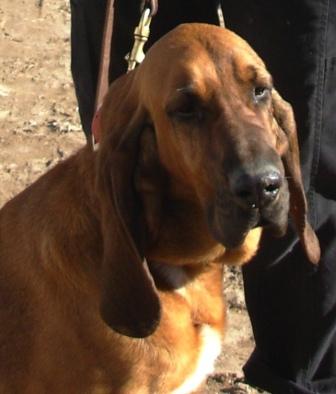
We are not the only ones who suffer
when a beloved pet dies
My Great Dane died last month. She was 11 years old, and I knew it was a matter of time, but of course I did not want to admit to myself that one day Ivy would no longer be with us. I am grieving. I feel a sense of emptiness when coming home from work and not seeing her at the fence to greet me, and there is that lingering pain of loss when I think of her.
But I’m not the only one grieving. This last month, I have found Mabel the coonhound curled up on Ivy’s grave, stuffed animals and all. The two of them were constant companions, napping buddies, and barking buddies with the dogs next door. They shared their toys, playing tug-of-war with them. I think Ivy taught Mabel how to shred them to pieces, littering the front yard with white fluff. Am I projecting my feelings of loss on my dog, anthropomorphizing, attributing my human emotions or motivations to my dog?
Ivy's best friend Mabel
In my research, I found countless articles on the topic of animal grief, and the general consensus is that animals do grieve the loss of their animal friends. Of course, there is no scientific proof, as one author mentioned, “but the majority of the information comes from a combination of observation, evolutionary logic, and talking to insightful animal people.”
I like to think of myself as an insightful animal person, and in my observation, in the days after Ivy’s death, Mabel was exhibiting some classic telltale signs of grieving for her friend.
An online article from eHow, “Stages of Grief in Animals,” describes four specific signs of animal grief. The first is searching for the missing individual. Mabel watched as I buried Ivy, and then frantically ran around the yard in search of her. An hour later, she began to paw at the grave, whimpering as she dug. I had to cover it with large rocks and tell her no to keep her from digging at the grave, which is in the same yard that they shared.
The second stage is silent grief, listless behavior, and a lack of energy. That’s how I knew something was wrong. Mabel lay for days on Ivy’s bed, pulling blankets from the shared doghouse, as if to wrap herself with Ivy’s scent. I’d walk out my front door and call for her, and she’d reluctantly come to me. At first I thought she was sick, but she was still eating. I bought her more stuffed animals. I gave her extra bones. I sat with her, rubbing her big floppy ears, trying in some way to console her.
That night she let out the most mournful howl right below my bedroom window. The other dogs did not follow suit, so I knew it had nothing to do with the local coyote pack crossing in front of the house, which is what usually gets them going. I believe it was Mabel crying for her friend. I brought her in the house, and we sat together watching TV while I fed her crackers.
The third sign mentioned is loud cries. Animals like wolves will make loud sounds at random times when they lose a member of their pack. I noticed that throughout the week, Mabel would sit and howl for no reason, and the other dogs never did. Then she would trot off to look for Ivy. Later in the week she started sleeping near the grave.
Mabel never lost her appetite, which is the fourth sign. However, a month later I’ve noticed that she is still more mellow than usual. I have always felt that we are not the only species to mourn, but this experience has confirmed it. Grief is a universal response to the loss of a significant loved one. Ivy was a very significant being not only to me, but to her best friend Mabel.
